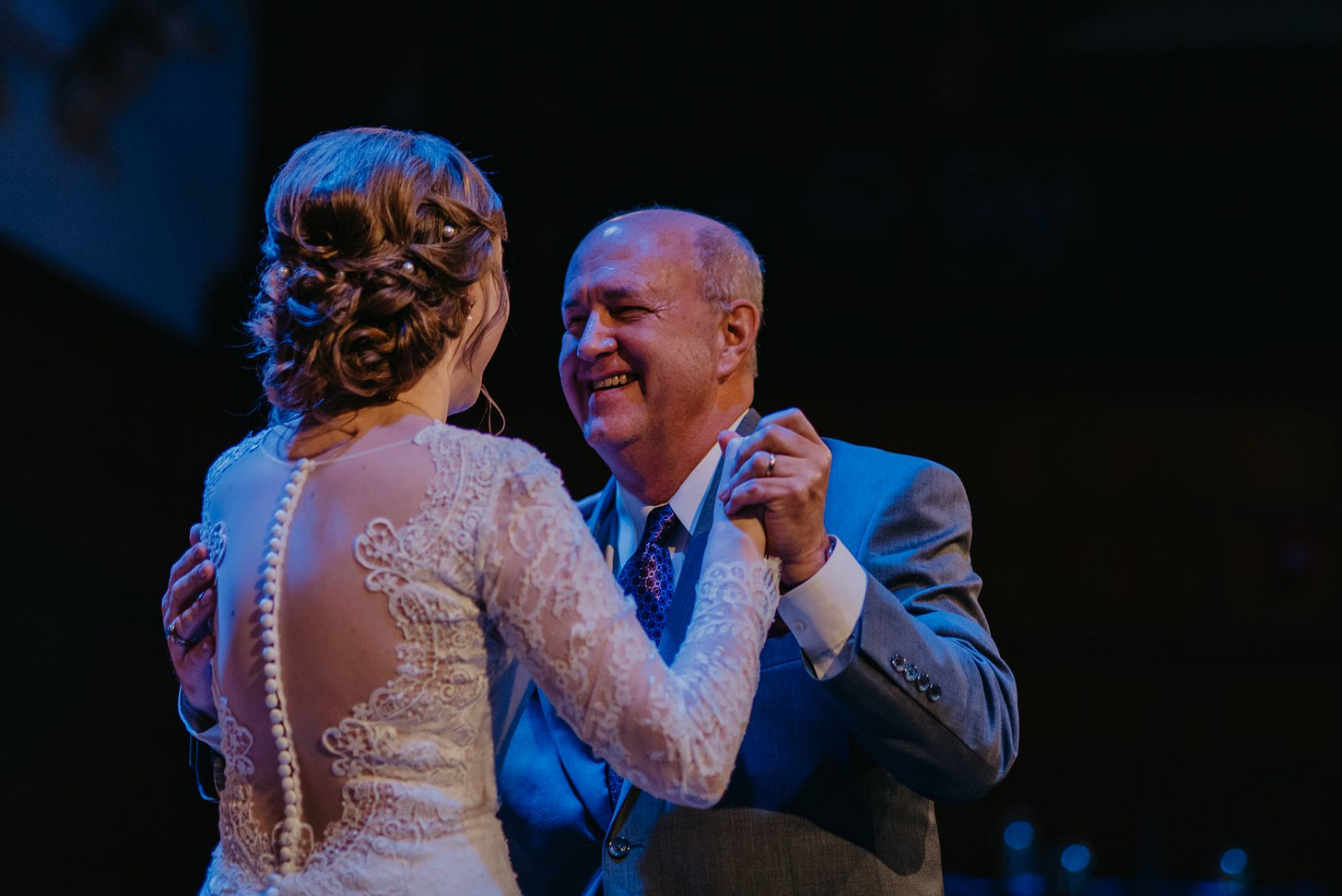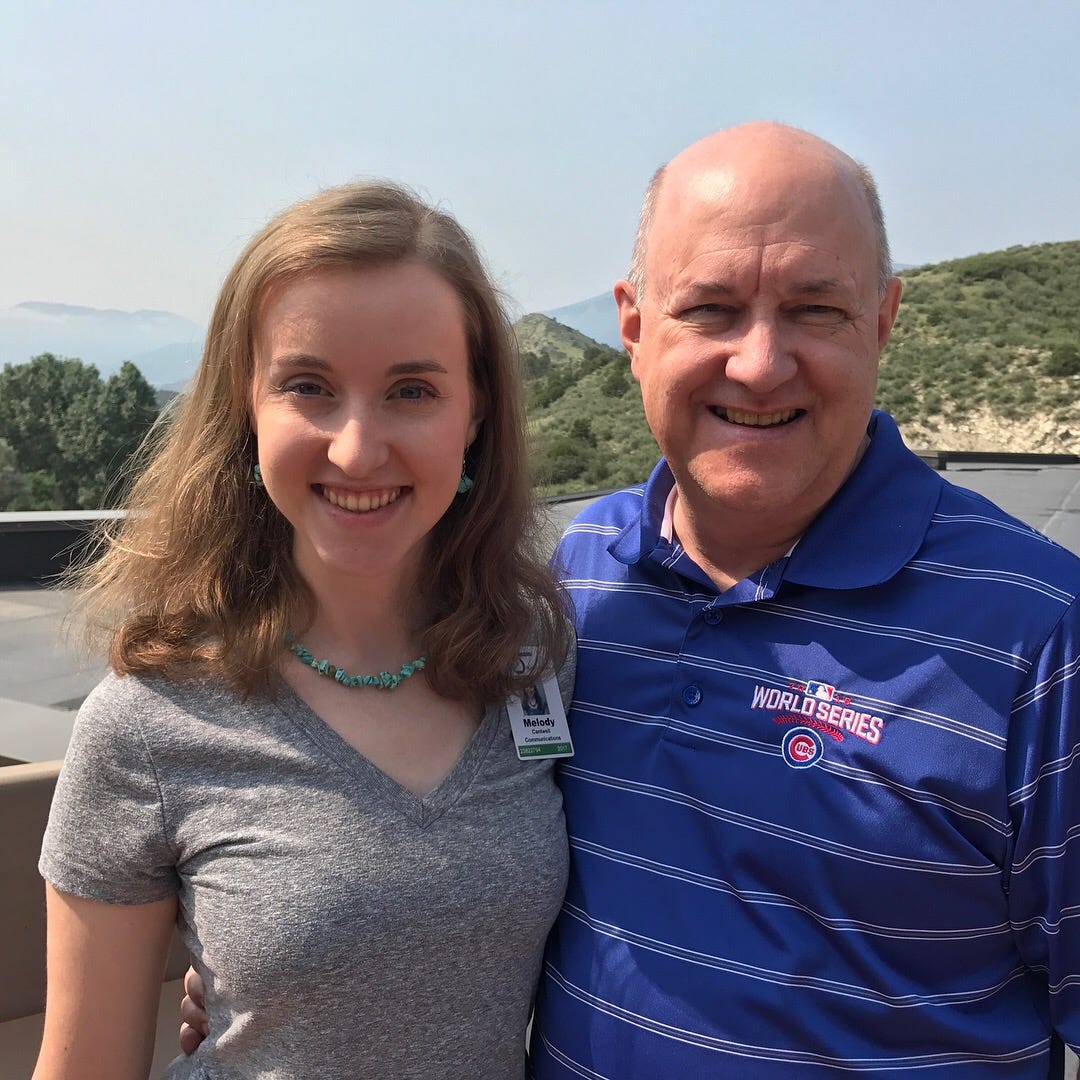After last month’s post for my mom’s birthday, you didn’t think I’d forget my dad, did you? His birthday is today, exactly five weeks after my mom’s. Happy birthday, Dad! I love you!
1. How to succeed at work.
Before I started my first job, my dad told me: “Show up on time and get your work done on time, and you will go far.” It didn’t make sense to me at the time (that’s literally the bare minimum! It’s what everybody will be doing! Shouldn’t I be early and do more to get ahead?). Yet, in all of my jobs, I’ve learned that it really is enough. Timeliness respects others, and what I considered “the bare minimum” was often harder to keep up than I thought. There aren’t rewards for being early, and it can even be an undue burden. Just be on time and do your work on time: this is true for school, work, volunteering, and pretty much any situation where you are working with others. This also puts up a good boundary between work and life outside of work: work happens within work hours. I’m forever grateful that my dad put his family first while being fully invested at work.
2. Take pleasure in culture.
Cultural literacy was my dad’s pet project for my brother and me. It meant listening to Carmen and watching Alfred Hitchcock movies and going to art museums. He read our high school assigned books along with us, and has been known to wade through Dostoevsky on his own.1 He taught me that I control my media engagement, it doesn’t control me. (This proved to be helpful in the age of the smartphone.) Why be culturally literate? For our family, the purpose is for enjoying the life of the mind together. Engaging in culture together gave my family shared experiences that led to thoughtful conversations. No movie viewing was complete without a Cinematic Confabulation.2 It wasn’t just high culture, either; ten bucks is ten bucks to ’80s DJ Malibu Mike! Now that they’re empty-nesters, my parents attend more rock concerts than anyone I know, and they travel the world together. Meeting the world with curiosity is a more rewarding way to live than suspicion, and it makes for better friendships, too.
3. Learn to do things the right way.
There’s a right way to do things, according to my dad, and it’s worth learning. Whether it’s writing a paper, packing a car, or doing the dishes, getting things done right is worth the effort. It’s empowering, too, to not rely on my own small wits in the moment, but to research, plan, and try. My family has the most high-effort slideshows and photo books because our memories are worth it. We have party-specific playlists because the soundtrack makes a difference. We can pack and organize and schedule like nobody’s business.3 If it’s worth doing, it’s worth doing well, even if it takes time.
4. My voice is worth hearing.
When my dad asks for my opinions and seeks out my friendship, it’s a validation of my intellect like few others I’ve ever known. All the awards in the world tarnish in comparison to having my dad sincerely ask for my input. We don’t agree on everything, but disagreement doesn’t even matter, because we both feel free to share and listen. By being friends with me, my dad has made it easier for me to relate to men all my life from a secure place. My dad is an extrovert, the most conversational person I know, but he’s not selfish or one-sided about talking. (You can bet on him finding a mutual friend within five minutes of meeting you!) He seeks other’s voices, including my own, and in doing so has taught me to listen well, too.

5. Be empathetic.
My dad’s first job was at McDonald’s, and he told me one drive-thru story that stuck with me. A customer responded harshly to his question, “Would you like fries with that?” Upon pulling up to the window, the customer apologized and explained she and her daughter were on the way home from the hospital, where her husband had just died. A question about fries she didn’t want was the final straw in the freshness of her grief. So, my dad told me, you never know what someone’s going through, why they’re reacting that way, or why they made that decision. Be kind even when they don’t deserve it. It goes for strangers, family, and friends. It’s taught me to pay better attention to others (though I’m still learning to not take everything personally). Usually, it’s not about me, but about the other person and what they’re enduring. My dad taught me to “look and love” (Mark 10:21) to truly see people.
6. Men and women need not compete.
My dad never said, “The women, God help us!” or “The ladies, God bless them.” He “had no axe to grind and no uneasy male dignity to defend.”4 My dad’s way of being masculine did not domineer, but gave my mom and I freedom to be feminine in our own ways. When he took me to work with him, I saw how he related to his female employees and bosses with respect and sincere admiration. In some way, this imprinted upon me to only accept overtures from a man who made me feel just as free and safe. And just as important, a man who shares my dad’s inclination to do the dishes, then take everyone out for ice cream.
7. God is love.
It’s been many, many years since I was small enough to ride on my dad’s shoulders. I don’t have a specific memory of being carried up there, but I have a vivid sense of what it was like to look on the world from his shoulders. I felt secure, but also free. Now, I connect that feeling to God: being held up high, beyond my own ability, seeing farther than I could on my own, securely held but with a breathtaking sense of freedom. My dad often played “Isn’t She Lovely” by Stevie Wonder for me: “isn't she lovely? Made from love.” In both words and actions, my dad teaches me how love multiplies, how love fundamentally takes delight in another, and how love means seeing each other as gifts from God.

I find writing about families to be powerful, from Angela’s Ashes to My Family and Other Animals. Sometimes, I feel like I have nothing to add. My family is just so normal and functional to the point of sounding boring, even if we do quote The Andy Griffith Show more than your average family.5 But being a member of my family isn’t boring, and it’s the combined genius of my parents who got us here. Both of them passed on piles of gifts from their natal families, while creating something entirely their own. Now, my family isn’t perfect. We’ve all hurt each other innumerable times. Yet, we know how to apologize. We know how to forgive. And we know how to laugh and move on together.
When my dad took a Greek class in seminary, he chose Philippians 2:1-4 to translate for an exercise:
Therefore if you have any encouragement from being united with Christ, if any comfort from his love, if any common sharing in the Spirit, if any tenderness and compassion, then make my joy complete by being like-minded, having the same love, being one in spirit and of one mind. Do nothing out of selfish ambition or vain conceit. Rather, in humility value others above yourselves, not looking to your own interests but each of you to the interests of the others. (NIV)
Most people would choose to translate Philippians 2:5-11, the complex hymn about Jesus’ incarnation, the cross, and exaltation. The less theologically interesting passage is the more personally challenging one, laying out the cruciform life in community. According to St Paul,6 unity is accomplished through humility. This is true for Christian families as well as churches. There’s no place for oneness if someone is “more equal”7 than another. As our family has grown and changed, we go through seasons of looking to each others’ interests in addition to our own.
In each of these seven lessons I learned from my dad, humility8 is the basis, my dad valuing others like himself: being considerate to others at work; appreciating the gifts of creativity in community; making life go smoothly for all concerned; listening well; having empathy; caring for women; and sharing God’s love. Humility is Christlike. The love of a humble father invited me into the love of my humble Savior.
I know that these months of Mother’s Day and Father’s Day are challenging for many. Family is often a source of profound pain as well as joy. I don’t often write about my family, but with my parents’ birthdays aligning on my publication dates, I found inspiration in the gifts they’ve given me. There’s a lot of excellent, important writing about difficult families out there. I think it’s just as important to commemorate and celebrate the good and to encourage one another. Telling our own stories honestly and faithfully does not erase others’, but contributes to the human task of remembering one another and living well together.
Even I, the English major, need a buddy to get through Dostoevsky.
In the chat/discuss/confer sense, not in the fabrication sense.
Except it’s everybody’s business, because there’s a color-coded spreadsheet.
Are Women Human? by Dorothy L. Sayers, 68.
You know which episode I was quoting when my husband and I drove past Fort Knox a few weeks ago!
My dad’s middle name, no less.
I thoroughly enjoyed Animal Farm (when I was way too young to understand its political meanings) when I listened to the audiobook with my dad on the way to and from ballet class. Realizing what “All animals are equal, but some are more equal than others” meant indelibly shaped my perception of social situations.
I mean, he was a Cubs fan before 2016, and you can’t have been that without a little humility and a whole lotta hope.






Melody,
Thank you for this beautiful and treasured gift. You are such a gifted listener, thinker, and intentional processor of life. It’s wonderful to see that you so often use those gifts to bless others.
Love, Dad
What a refreshing and great tribute to your dad. Most of us have a very human tendency to want to point out the flaws, failings and weaknesses of others. But in identifying and discussing his strengths and positive attributes, he is honored, and you become a great cheerleader for him. As a dad, I know that Gary will cherish these comments and be lifted by your praise. Blessings to you!